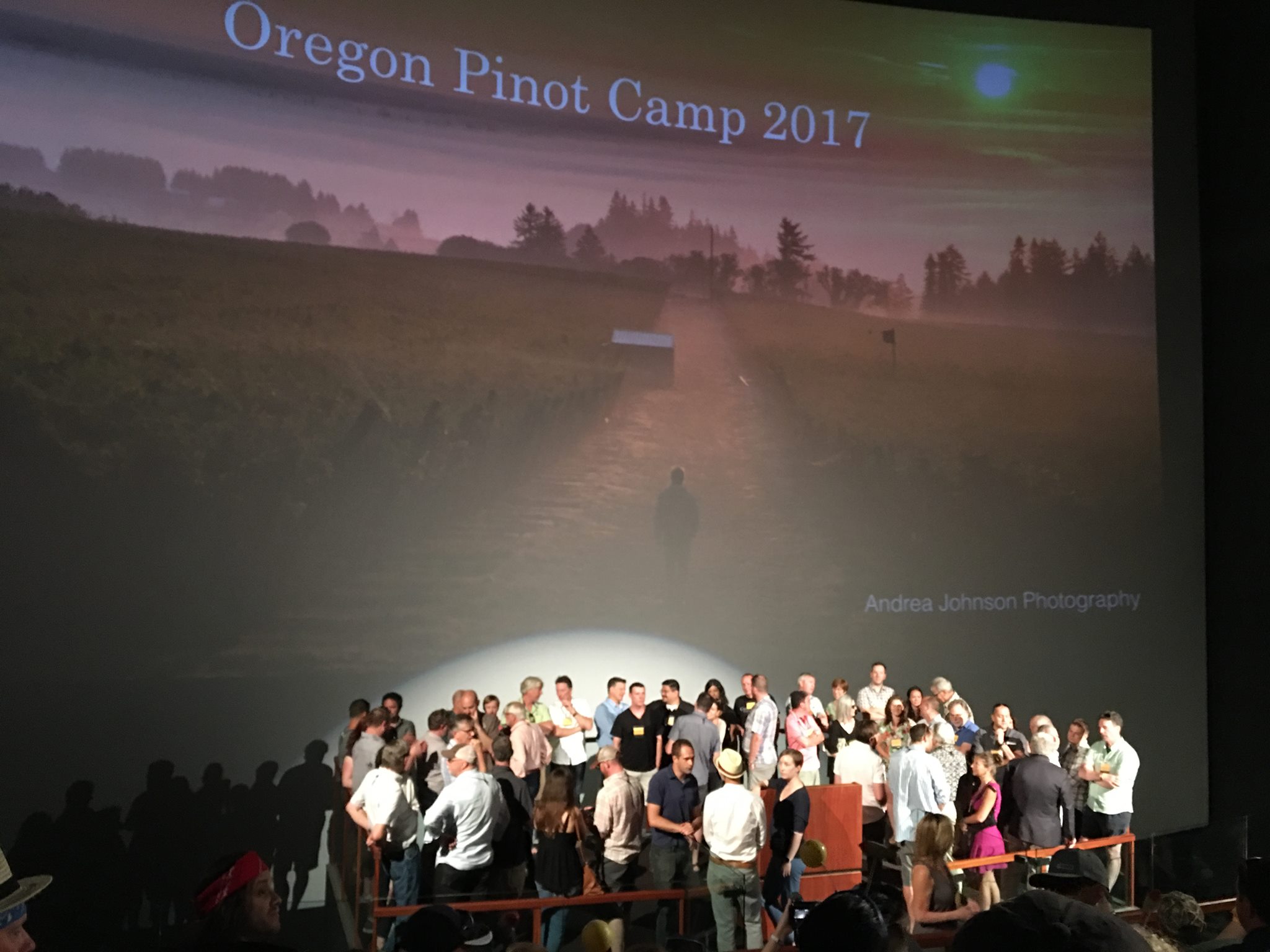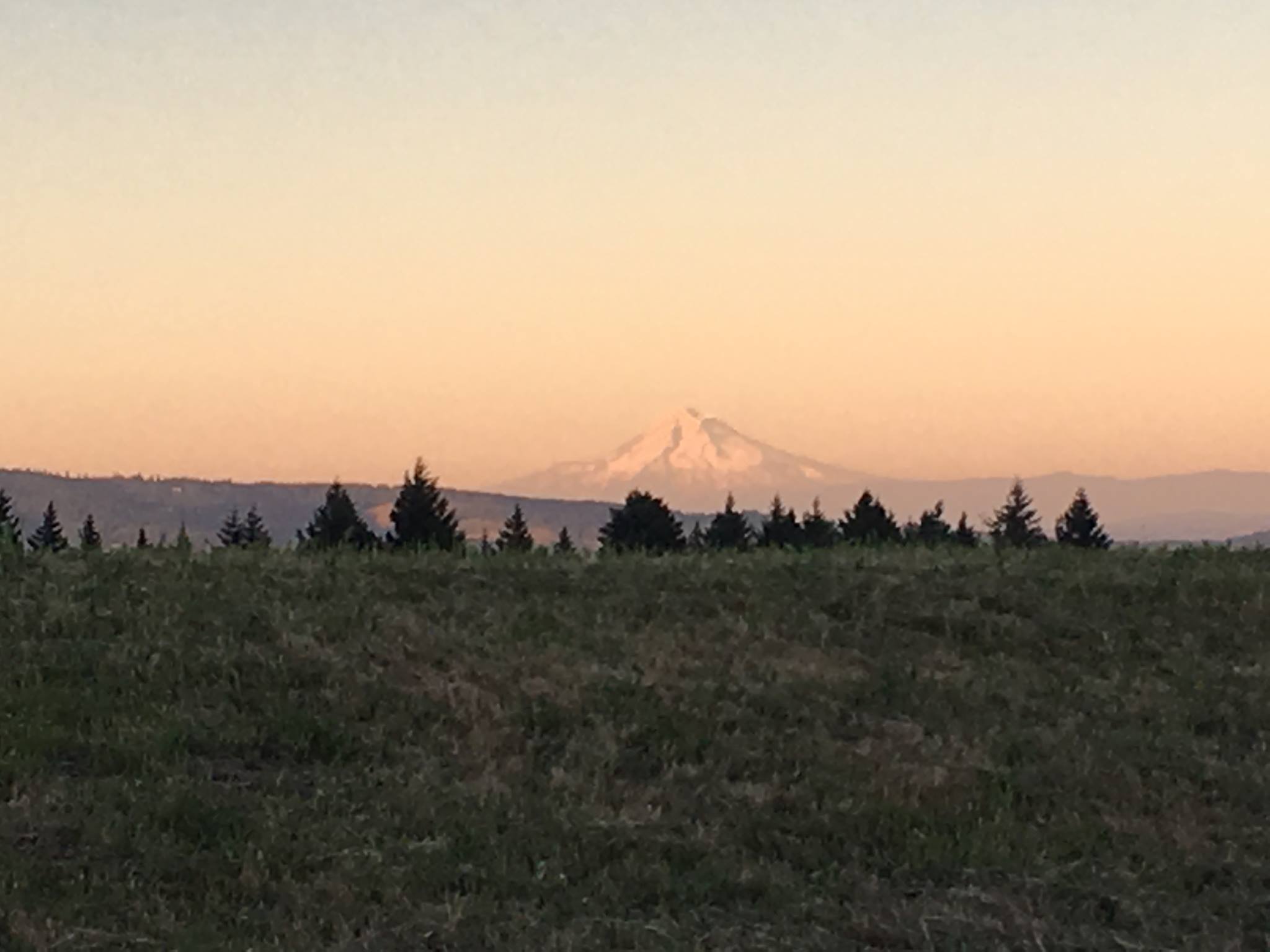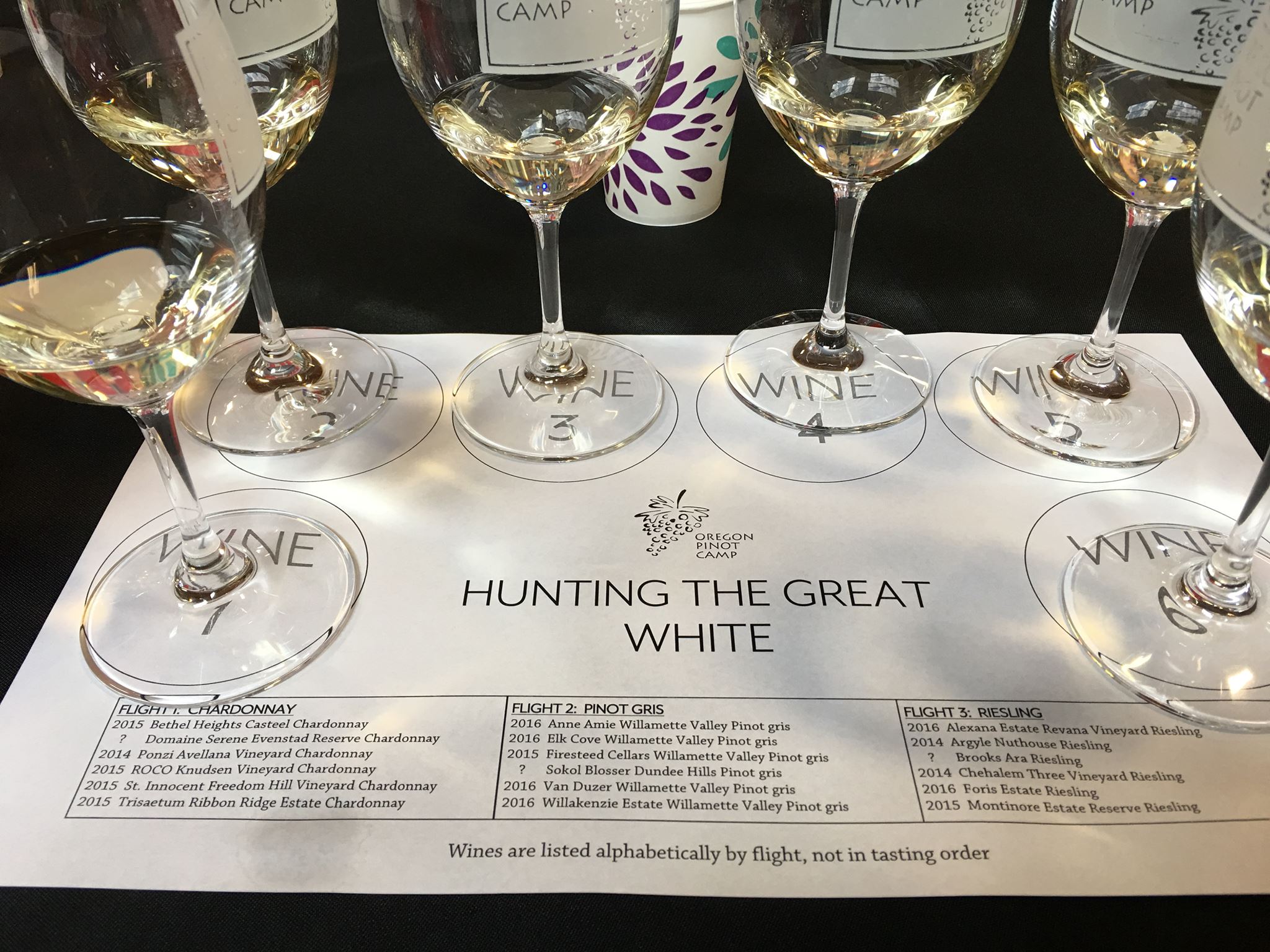
I have just returned from Oregon Pinot Camp. This event has been organised annually since 2000. Approximately 270 members of the wine trade from the US – plus a smaller international delegation -are invited to Oregon by the Pinot Camp (a group of some 50 leading wineries) to learn about local viticulture, winemaking techniques, and, in particular, Oregon’s predilection for the Pinot Noir grape.
I will be writing about my trip in greater depth, but suffice to say that it was an incredibly enjoyable experience and brilliantly organised and showed Oregon in a progressive and welcoming light. Oregon is home to a highly unified, friendly and supportive producer network – I would go further – in my experience Oregon presents the most united front of any wine country or region in the world. Oregon has excellent ground rules and exacting standards, set up clearly to produce quality wine. The producers, who by and large are extremely articulate, share the same objectives. This stems from the pioneers themselves and their necessarily collaborative approach, based on mutual respect, admiration and friendship.
In my experience Oregon presents the most united front of any wine country or region in the world.
These pioneers had more in common than unsupported ideals. They shared the common experience of limited finances and were forced to begin on very low budgets, buying used equipment and working other jobs to make ends meet. Having found each other, they met often to share information as they adapted and invented techniques to deal with their uncharted terrain. They learned to farm, incorporating the finer aspects of viticulture; they discovered the details of delicate winemaking; they navigated their way through bureaucracies and legislation. They learned that they had to learn how to promote and sell.

Sustainability is key to the Oregon wine trade. There is a strong emphasis on stewardship of the land that stems from a land act passed in 1973 which raised the value of farmland and encouraged vineyards to be planted, the establishment of the LIVE programme and other sustainable initiatives, and the move towards biodynamic practices in many vineyards. One notices a commonality of practice (both in farming and winemaking) which helps to project this shared purpose. A by-product of working according to received wisdom and shared agendas is that people stop thinking outside the box and experimenting. This is most obvious in the winemaking where I felt (by and large) that oenologists were trying to tame Pinot Noir rather than let it express the nuances of terroir. Terroir was enthusiastically talked up; we heard a lot about different soil types and microclimatic variations, but such variables do not inevitably translate into the final wine.
Sustainability is key to the Oregon wine trade. There is a strong emphasis on stewardship of the land.
A young wine culture often tries to convey that it is collectively moving in a single direction. It is easier to market a unified (and unifying) message and to give an idea that wines from certain region will have a discernible and unique character. The winemaker has a pre-eminent role in ensuring that this message is upheld. I am not saying that the wines are homogenous, but they are certainly made (and I use that word advisedly) with a premium on power. If this is what Oregon has to offer, and many people love these wines, after all, then so be it. To be fair, many winemakers are throttling back on the oak and extraction, but Pinot Noir needs a much lighter touch (imho). We may also recognise that Oregon has the climate and variable soil types to make other noble wines, but when 60+ % of the state is planted to a single varietal, and all the events (Pinot Camp; IPNC) are based on a celebration of this grape, then growers and winemakers are always going to focus on the bread-and-butter business. (Bet Pinot Noir has never been called that before!)

What excites me is the “other”. The grape and terroirs explorers. And those who understand their vines, and are midwives rather than winemakers.
I would like to thank The Oregon Wine Board for the invitation and for looking after us so wonderfully. And to the organisers and volunteers of Oregon Pinot Camp, whose good humour and logistical savvy defied belief. And to the many wineries for hosting and feeding us cocktails of food, wine and knowledge. But no cocktails as fair as my hazy memory goes!

